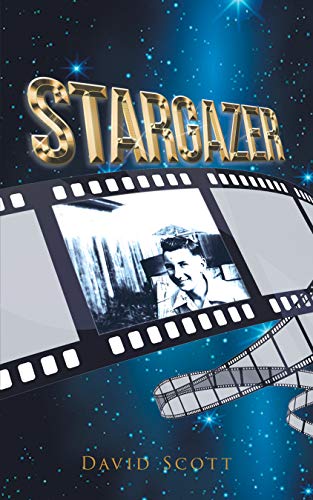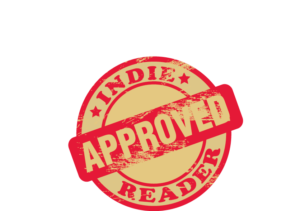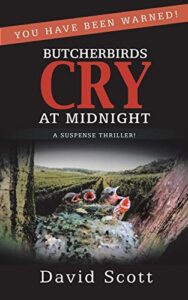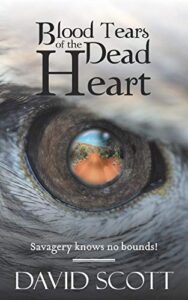Stargazer received a 4+ star review, making it an IndieReader Approved title.
Following find an interview with author David Scott.
What is the name of the book and when was it published?
The name of the book is Stargazer, and it was published January 27, 2020.
What is the book’s first line?
“Talking about one’s conception with a parent sounds bizarre, but it happened quite innocently while Mum was staying at a thoroughbred horse stud I ran in the eighties.”
What is the book about? Give us the “pitch”.
Stargazer is an insight into a life that is shaped by the circumstances that transform us moment by moment. It starts during World War II when Australia was a vastly different country to today. Growing up in a small rural town in the early 1950’s, gives an insight into the way life was before technology arrived. Boarding at a prestigious college shows how ‘old English’ the establishment was – a devastating experience for a naïve country lad. Forty years within the film industry, during the golden years of Hollywood and through the advent of drive-in theatres, is told vividly and with humour. Venturing into the thoroughbred horse industry created precious memories, but a costly decision that precipitated a riches to rags scenario. A world turned upside down was navigated with humour, (a compass for moving forward), frustration and undaunted determination. Change occurred when least expected: a near-death experience became a catalyst for writing, and a new way of experiencing life. The joy of putting pen to paper, combined with dedication and discipline were rewarded with success, as a popular stage play writer and novelist. This book is about hope, never giving up despite adversities, and finding a purpose in the ordinary that enables our extraordinary to shine.
What inspired you to write the book? A particular person? An event?
Stargazer was inspired by the dogs that have shared my life. My original drafts for this story were about all the canines who have journeyed with me, however along the way it became my story; an unexpected occurrence and one I’ll never regret.
What’s the main reason someone should really read this book?
Like all books, readers are drawn to them for one reason or another. Stargazer is my story, and at the same time it is everyone’s story. Life is moment by moment, and each choice/decision shapes us and the direction in which we will travel. I hope my book will inspire readers to look at their lives and go beyond what they have called the ordinary, and open their eyes to the extraordinariness of what they have, and will continue to create.
If they made your book into a movie, who would you like to see play the main character?
If they made my book into a movie, it would be a dream come true. There would be a sense of my life having come full circle. With me being the main character (how strange that sounds), I would like Hugh Jackman as a middle aged/older me. An actor to play the younger me is something I am not sure about; perhaps an unknown performer.
When did you decide to become an author?
I didn’t plan to become an author, it was something that occurred somewhat unexpectedly. I underwent a near death experience during a life threatening asthma attack, and my recuperation was a lengthy process. During this phase my mind was active, however I struggled physically for quite some time. To help fill in my day, I decided to enroll in a creative-writing course, via correspondence. I had always been a daydreamer, and the joy of putting my thoughts on paper turned out to be an integral part of my recovery process.
I started sending short stories to magazines and literary competitions. When my story, The Drover’s Dog, (inspired by a dream I had), won equal first prize in the Animalia Literary Contest, I became more serious about my writing and the possibilities that were open to me.
Is this the first book you have written?
No, this isn’t my first book, I have also written two novels. Butcherbirds Cry at Midnight was borne out of the success of my first stage play of the same name. The theatre production enjoyed a very successful three week season on the Gold Coast, and this inspired me to write the novel. The story line is quite confronting and triggered a lot of emotional responses from the audience.
Blood Tears of the Dead Heart, is a completely different genre; an Indiana Jones style adventure in Central Australia, complete with sex, murder and a tribal uprising.
What do you do for work when you are not writing?
I don’t consider writing ‘work’: it is something that I love to do and I am most fortunate to be employed in another creative medium. I work as a simulated patient (actor) for medical students at a university. Roles are as varied as book scenarios: victim of a supposed chain-saw accident; hearing voices and seeing faces in walls. There is also the anatomical examination scenario – lying on my back and staring at the ceiling while up to sixty students check my male genitalia!!
How much time do you generally spend on writing?
The time spent on writing can vary (depending on what unexpected events occur), however, I am disciplined in my approach and usually write from 6.00 a.m. until after midday most days. I am fortified by numerous cups of tea! Some days I have to force myself to start the process, however by the end of the session I am pleased that I persevered. Time flies when I am writing and all else is forgotten – including my cups of tea which are often cold when I drink them! Each page is revised and re-written until I am satisfied, and that often means returning to the work after several weeks.
What is the best and the hardest part of being an indie?
Let’s start with the hardest part of being an indie: choosing the right publisher. For my latest book I chose Tellwell Publishing, and I am so pleased I did. Their guidance and expertise on this journey has been outstanding. My novice computer skills were frustrating for me, (previously I had used a typewriter), so I can only imagine what it must have been like from their perspective, and yet at no time did I feel unsupported. In fact their dedication and commitment to my project, inspired me. They have shared my anguish, exasperation and joys. I did contact another company around the same time, however the connectedness and confidence that I felt with Tellwell, was not evident with this company, so in the end it made perfectly good sense to entrust my book to Tellwell.
The best part of being an indie is that every decision is my own. The process of writing is very individual, we all have our own style, standards, hopes and dreams. To be able to take my work from conception to finished product is the most amazing feeling: a sense of accomplishment that is very rewarding on a personal level.
What is a great piece of advice you can share with fellow indie writers?
Sharing a great piece of advice with fellow indie writers is difficult because there is so many things I would like to impart.
Writing requires a lot of self-discipline, belief in yourself and your product. Know what you want to write about and then start the process. Try and write something every day and be flexible: quite often your first drafts will be discarded along the way, but the heart of the story will guide you to find the words you need to express yourself and create your masterpiece. You will know when the time is right to contact a publisher and when you do, choose wisely. Of course I would always recommend Tellwell Publishing.
Would you go traditional if a publisher came calling? And if so, why?
No, I wouldn’t go traditional. These days, many publishers recommend writers do their own promotional work and they often keep certain rights regarding your book. Having benefitted from the expertise of Tellwell Publishing on so many levels, I have no desire to change publishers.
Is there something in particular that motivates you? Fame/fortune?
Motivation is usually triggered by something, and I guess that depends on the situation. With the autobiography, my motivation was selfish – I wanted to leave my story for posterity: for someone to pick up my book in one hundred years, ponder the title and wonder about who I was.
Perhaps in one sense, fortune is a motivator. I have a strong desire to re-build my parents Melba Theatre at Cobram which was burnt to the ground late last century, and that will require a substantial amount of money if I am to fulfil my dream. I would love to show the public what true entertainment is, not the supermarket-style way films are presented to people nowadays, in soulless venues. Presentation is not just about the film, it is ushers and usherettes showing people to their seats; curtains and prosceniums; organ music being played before screenings; someone in the foyer bidding patrons farewell while Dad’s theme song, Now is the Hour, plays over the speakers. Theatre goers deserve the whole entertainment package and I believe there is room in this modern world for gentility and showmanship, something so many people have never experienced.
Which writer living or dead do you admire most?
Answering that question requires a little bit of leeway. There are three writers’ I admire: Ion Idriess for his tales of colonial Australia; Earnest Hemmingway for The Old Man and the Sea, and all of Steinbeck’s work.
Which book do you wish you had written?
The book I wish I had written is The Old Man and the Sea: it rings a chord with me as I know how thoughts flow when alone with nature. I wanted to know what lay around the next bend in the river; what towns and cities were up and downstream; what people; what new experiences? The old man’s struggle against the elements and sharks cost him his greatest catch – all because he went too far out to sea. He never gave up: after recovering from the ordeal, he set sail again in waters he was accustomed to. His undiminished hope is similar to the way I live my life.



